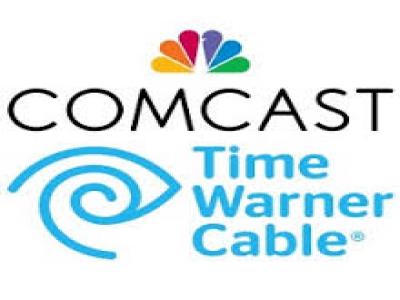Some Comcast/TWC Deal Concerns Don't Matter: Analysts
The smarter way to stay on top of the multichannel video marketplace. Sign up below.
You are now subscribed
Your newsletter sign-up was successful

In a note to investors, BernsteinResearch says it still expects the Comcast/Time Warner Cable merger to be approved by the FCC--with conditions--and close by the end of first quarter 2015 or the beginning of the second quarter.
While it notes that sentiment has become more negative on the deal following the FCC's stopping of the shot clock on the transaction, it suggests that and other concerns of investors are overstated.
The BernsteinResearch team, led by senior analyst Paul de Sa, points out that procedural disputes like those that stopped the clock--access to contracts, incomplete filings--are typical in large and controversial mergers. They point out that the clock was stopped once for the Comcast/NBCU merger and twice for the Verizon/SpectrumCo deal (both of which were approved).
They also downplay the concerns that the FCC may establish a speed threshold for the Internet access marketplace, arguing that the competitive marketplace is local, not national, and offered speeds are not relevant. They also proving market power in interconnection would be tough.
As for the network neutrality proceeding having an adverse impact on the deal's outcome or timing, they say they see little interaction between the two, with the exception that rules with some for a Title II hybrid approach could make the merger approval less controversial, which "backlash" against weaker rules could make it "incrementally" harder.
The researchers suggest that, as with the Comcast/NBCU merger, the FCC will likely make adherence to whatever new rules it comes up with a condition of the deal, just in case those rules don't pass court muster, as the last ones did not. Comcast is still subject to the 2010 Open Internet rules thrown out by the court per that deal condition.
As to inside-the-Beltway analysts expressing doubts about the deal, "we suggest they should be treated with skepticism by investors."
The smarter way to stay on top of the multichannel video marketplace. Sign up below.
Contributing editor John Eggerton has been an editor and/or writer on media regulation, legislation and policy for over four decades, including covering the FCC, FTC, Congress, the major media trade associations, and the federal courts. In addition to Multichannel News and Broadcasting + Cable, his work has appeared in Radio World, TV Technology, TV Fax, This Week in Consumer Electronics, Variety and the Encyclopedia Britannica.

